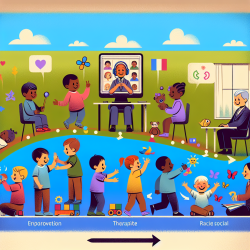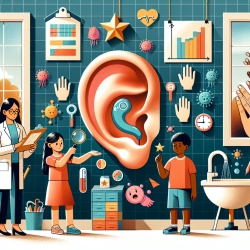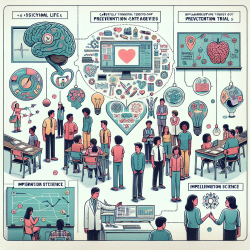Introduction
In the realm of child development, understanding the dynamics of peer relationships is crucial, particularly for children with disruptive behavior disorders such as Oppositional Defiant Disorder (ODD) and Conduct Disorder (CD). Recent research highlights the role of prosocial skills in moderating peer impairment in these children, providing valuable insights for practitioners in the field.
Understanding the Research
The study, "Prosocial skills may be necessary for better peer functioning in children with symptoms of disruptive behavior disorders," explores the relationship between symptoms of ODD and CD and peer impairment. It specifically examines whether prosocial skills can moderate or mediate these associations. The findings suggest that prosocial skills significantly moderate the negative effects of CD symptoms on peer impairment, emphasizing the need for these skills in improving social outcomes.
Key Findings
- Children with high prosocial skills and fewer conduct symptoms exhibit less peer impairment.
- Prosocial skills do not mediate the relationship between disruptive behavior symptoms and peer impairment, but they do moderate the impact of CD symptoms.
- Interventions that solely focus on reducing conduct problems without enhancing prosocial skills may not effectively improve peer functioning.
Implications for Practitioners
For practitioners working with children exhibiting disruptive behaviors, these findings underscore the importance of incorporating prosocial skills training into intervention programs. Here are some actionable steps:
- Assessment: Include evaluations of prosocial skills alongside traditional assessments of disruptive behaviors to gain a comprehensive understanding of a child's social functioning.
- Intervention Design: Develop multicomponent programs that target both the reduction of disruptive behaviors and the enhancement of prosocial skills.
- Skill Development: Focus on teaching children how to share, empathize, and cooperate with peers, which can be integrated into therapy sessions or classroom activities.
Encouraging Further Research
While this study provides valuable insights, it also opens avenues for further research. Future studies could explore the specific prosocial skills that most effectively improve peer relationships and how these skills can be taught in various settings. Additionally, longitudinal research could provide deeper insights into how prosocial skills development impacts long-term social outcomes for children with disruptive behavior disorders.
Conclusion
Incorporating prosocial skills into therapeutic and educational interventions for children with disruptive behavior disorders can significantly enhance their peer relationships and overall social functioning. Practitioners are encouraged to integrate these findings into their practice to foster better outcomes for children.
To read the original research paper, please follow this link: Prosocial skills may be necessary for better peer functioning in children with symptoms of disruptive behavior disorders.










